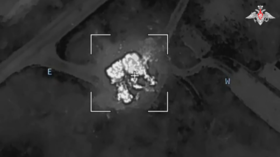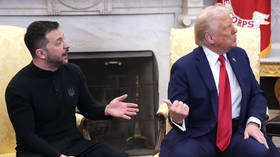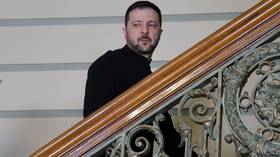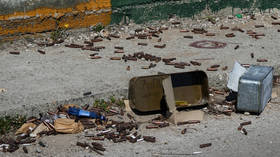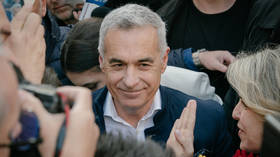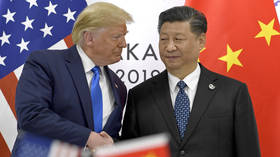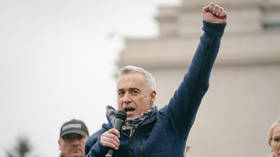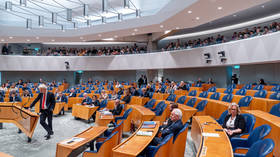'Radical new path': Macron proposes cutting French parliament by third
President Emmanuel Macron has proposed reducing the size of the French parliament by one third, among a set of "profound changes," as he set out his agenda for his term to the Senate and National Assembly in Versailles.
"Until now, we were on the wrong track - we preferred rules to initiative," Macron, who has a massive mandate in both presidential and parliamentary elections, told deputies during a 90-minute speech. “We cannot have before us five years of half-measures. It’s a profound transformation that the French demand. Let’s embrace it.”
“I am convinced that this measure will have positive consequences for the quality of parliamentary work. This reform is essential,” Macron said.
Emmanuel Macron propose "une réduction d'un tiers" du nombre de députés et sénateurs pic.twitter.com/yMZoZcJX3M
— BFMTV (@BFMTV) July 3, 2017
With the reduction of one third, the French parliament will be “less numerous, but strengthened in its means.
“It is a Parliament… that works better,” Macron said.
If the reform is approved, the National Assembly would be cut from 577 members to 385 and the Senate would be reduced from 348 members to 232, Liberation newspaper calculated.
Macron wants to abolish of the Court of Justice of the Republic, a special French court that deals only with ministerial misconduct. French citizens can no longer tolerate “this exceptional justice,” he said.
The president also announced the reform of the French Economic, Social, and Environmental Council, a consultative assembly that advises lawmakers on political, economic, and social issues. The number of its members will also be reduced by “one third,” he said.
Among other announced changes, the president said he is lifting the state of emergency in autumn.
“I will restore the liberties of French people by lifting the state of emergency in autumn. These freedoms are guarantees of a strong democracy,” he said.
Macron said he would use a referendum to push the proposed reforms if necessary.
“I want... us to avoid half-measures and cosmetic arrangements,” he said. “These reforms will be submitted to a vote in parliament but if necessary I will have recourse to a vote by our fellow citizens in a referendum.”
In May, Macron requested that parliament extend the state of emergency until November 1.
France introduced the state of emergency following attacks in Paris in November 2015 which killed over 130 people.
After the attack in Nice in summer 2016, which left 84 people dead, the National Assembly extended the state of emergency for another six months until the end of January 2017. Then in December 2016 the authorities re-extended it until the French presidential elections. The current order was due to expire on July 15.
Under the state of emergency police and administrative authorities are given more powers, which allow house arrest and searches without warrants.
Macron ‘sending a message’ to bureaucrats, but battle against unions looming
French political analyst Nikola Mirkovic believes that Macron’s policies are light on detail so far, but are intended to set out the vision and tone for his presidency.
“France is five times smaller than the US, but has five times more members of parliament – so this has been a much discussed topic. I think Macron is also giving a strong message to France saying the state is going to downsize,” he told RT via videolink.
Mirkovic said that while Macron is a self-avowed “defender of the EU,” he is also attempting to push forward European-level reforms and to modernize labor regulations abroad, both in line with his campaign promises.
“He used the word revolution, and I believe he is going to try something new,” said Mirkovic speaking from Lyon. “But he is going to have a strong fight. The paradox is that most of the unions supported him against Marine Le Pen – but they already say that was politics and now it is lawmaking. There is now going to be what we call a ‘third round’ of parliamentary elections, once Macron tries to pass laws, which will bring people out onto the streets.”




